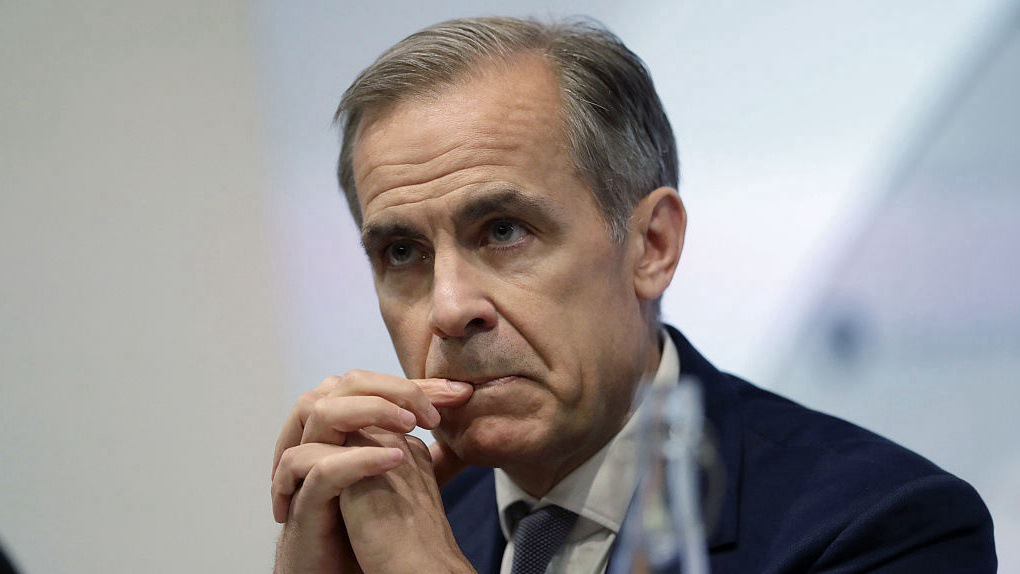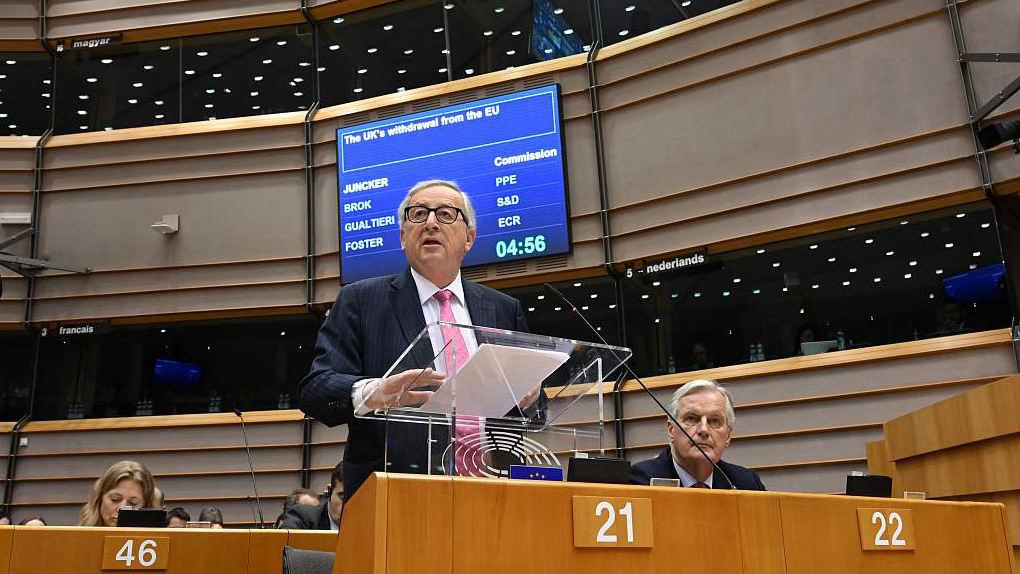
Biz Analysis
19:05, 04-Apr-2019
BoE governor: Risk of no-deal 'alarmingly high'
Global Business
00:49

Governor of the Bank of England (BoE) Mark Carney warned that the risk of a no-deal Brexit was "alarmingly high."
Carney claimed that a no-deal Brexit is a “possibility, and it is the default option,” despite that the European Union, British government and Parliament are all against no-deal.
“We're in a situation where the expressed will of parliament is for some form of deal. So to put in the double negative as they've expressed it – Parliament is against no-deal. The government as expressed by the Prime Minister is against no-deal. The European Union is against no-deal,” he worried.
“So no-deal would happen by accident. It would happen suddenly. There would be no transition to what we have just discussed. If [it happens] overnight, it has to pay a large tariff on those goods, which it will, because Europe will flip to WTO,” Carney shared his concerns.
The BoE once published a report, saying the UK's GDP could fall as much as 10.5 percent over a five-year period given the severest Brexit scenario, and housing prices in the UK could plummet as much as 30 percent.
Carney also noted that frictionless trade in a no-deal Brexit scenario was "absolute nonsense." According to the UK's Revenue and Customs authority, there will be a 13-billion-pound (about 17 billion U.S. dollars) annual increase in costs for British firms to fulfill customs declarations duties when exporting to the EU.
Meanwhile, a report from the British government also said the country's economy would be reduced between 6.3 percent and nine percent in the next 15 years of occurrence of a Brexit without agreement.
Moreover, the EU is considering a no-deal Brexit more possible than before. The EU's chief Brexit negotiator Michel Barnier said that Britain has become more likely in recent days to crash out of the EU without a divorce agreement.
00:46

And Jean-Claude Juncker, the head of the European Commission, also said that a no-deal at midnight on April 12 is now a likelier scenario.
"April 12 is however the ultimate possible deadline for approval (of the Withdrawal Agreement). If the House of Commons does not express itself by this date, no further short extension will be possible. After April 12, we would risk putting in jeopardy the good running of the European Parliament elections and to threaten the good functioning of the European Union."
He added that the bloc had contingency measures ready to mitigate the outcome. The commission president also made clear that the EU would set firm conditions for restarting talks with Britain on new trade ties should the worst-case scenario materialize. The widely anticipated market would bring great costs to the Britain economy.

SITEMAP
Copyright © 2018 CGTN. Beijing ICP prepared NO.16065310-3
Copyright © 2018 CGTN. Beijing ICP prepared NO.16065310-3